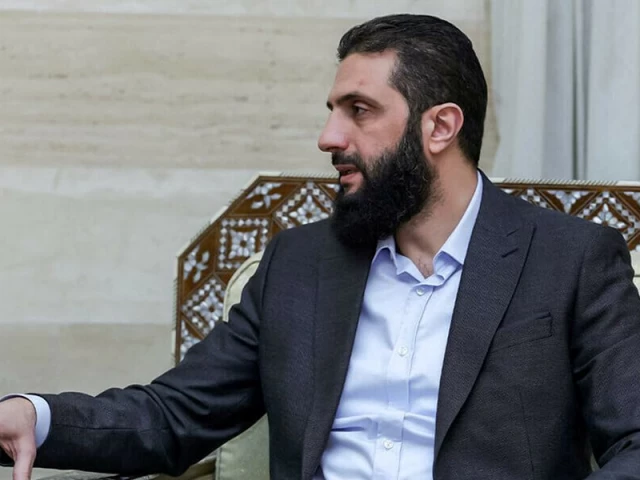New Syrian leader promises not to interfere in Lebanon
The Syrian army entered Lebanon in 1976 as part of Arab force that was supposed to put an end to the civil war

Syria’s new leader Ahmed al-Sharaa told Lebanese Druze leaders on Sunday that his country would not negatively interfere in Lebanon and would respect its neighbour’s sovereignty.
Syria will no longer exert “negative interference in Lebanon at all – it respects Lebanon’s sovereignty, the unity of its territories, the independence of its decisions and its security stability,” Sharaa told visiting Druze chiefs Walid and Taymur Jumblatt.
Walid Jumblatt is the first Lebanese figure to meet Sharaa since his group Hayat Tahrir al-Sham (HTS) and allied rebel factions launched a lightning offensive last month, seizing Damascus on December 8 and ousting longtime ruler Bashar al-Assad.
Syria “will stay at equal distance from all” in Lebanon, Sharaa added, acknowledging that Syria has been a “source of fear and anxiety” for the country.
Walid Jumblatt, long a fierce critic of Assad and his father Hafez who ruled Syria before him, arrived in Damascus Sunday at the head of a delegation of lawmakers from his parliamentary bloc and religious figures from Lebanon’s Druze minority.
Syria’s new rulers name foreign minister amid push for international relations
He met with Sharaa – until recently known more widely by his nom de guerre Abu Mohammed al-Jolani – at the presidential palace, where the new Syrian leader was wearing a suit and tie.
HTS has been proscribed as a terrorist organisation by many Western governments, including the United States, though it has recently sought to moderate its rhetoric and vowed to protect Syria’s religious and ethnic minorities.
Walid Jumblatt accuses the Syrian authorities of having assassinated his father in 1977 during Lebanon’s civil war.
Numerous other assassinations have been blamed on the Assad family’s government over the decades.
The Syrian army entered Lebanon in 1976 as part of an Arab force that was supposed to put an end to the country’s civil war, which began a year earlier.
But instead it became the dominant military and political force, looming over all aspects of Lebanese life.
Syrian forces only quit Lebanon in 2005 after enormous pressure following the assassination of former prime minister Rafic Hariri, a killing attributed to Damascus and its ally Hezbollah.



















COMMENTS
Comments are moderated and generally will be posted if they are on-topic and not abusive.
For more information, please see our Comments FAQ